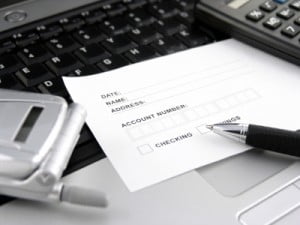
Joint Bank Accounts and Bankruptcy
If a bankruptcy debtor has a joint bank account with someone who is not part of the bankruptcy case, the bankruptcy court may still seize part of the assets in that account.
Here’s what you need to know:
- A debtor filing bankruptcy must disclose to the trustee all of their assets, including assets in a joint bank account.
- Even if the debtor does not have any assets in a bank account that bears their name, they need to disclose the existence of that bank account and declare to the bankruptcy court that it holds none of their assets.
- If a bankruptcy debtor does have cash in a bank account shared with someone who is not part of the case, they will need to disclose exactly how much is in the account. Also, they may need to hand over the cash to the bankruptcy estate if it is not protected by the bankruptcy exemptions.
- If there is a suspicion that assets in a joint bank account are being hidden or have been illegally transferred to the non-filing joint account holder, the bankruptcy trustee may demand that the money be turned over. The bankruptcy trustee could also demand that the bank account be frozen until it can be determined what percentage of the cash belongs to the bankruptcy debtor.
- If the debtor is filing Chapter 13 bankruptcy , the assets in the bank account will still need to be cleared but would not be in danger of seizure as long as the debtor completes the bankruptcy repayment plan.